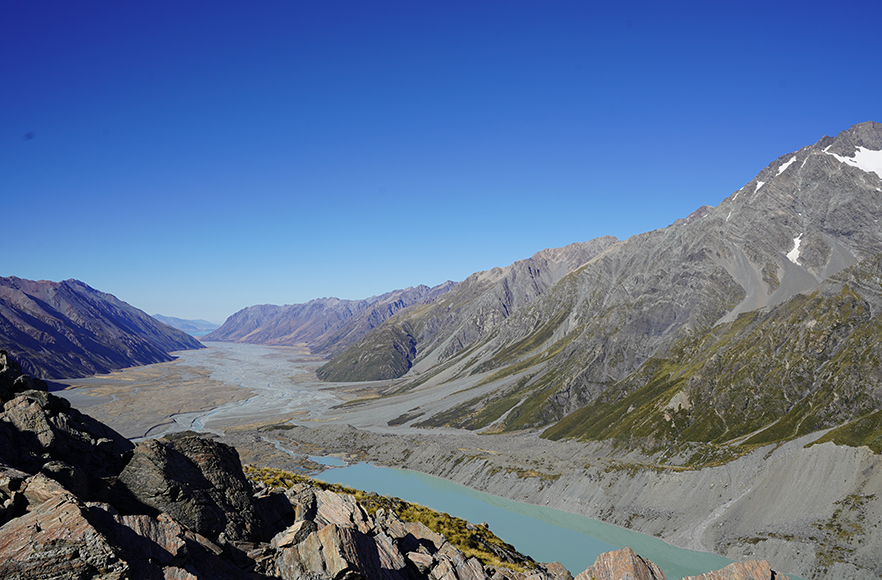
High-elevation landforms in the Godley Valley – South Canterbury
Alpine ecosystems are under intense pressure from pest species, but University of Otago research has highlighted how the mountains themselves can be used to help eradicate them.
The study demonstrates how mountain ranges can act as barriers to species such as stoats, hedgehogs, and mice, highlighting opportunities to create sanctuaries for threatened wildlife.
Lead author Nick Foster, of the Department of Zoology, says the research shows the "enormous potential" in utilising landscape features to naturally limit the rate of reinvasion from areas which have undergone pest eradication.
"Any landforms which influence the movement of pests are incredibly valuable in pest-removal programmes which take a 'remove and protect' approach.
"It has long been presumed that big mountains are barriers to New Zealand's pest species, but this is the first study to analyse and really validate this strategy," he says.
Published in Landscape Ecology, the study analysed the movements of 10 invasive species in a 310,000ha area in the upper Mackenzie Basin, proving the effectiveness landforms had in segregating the animals.
Nick Foster hopes the findings will lead pest removal groups to better understand how natural landscape barriers function in their areas, as well as highlight opportunities to protect upland areas in areas like the Southern Alps/ Kā Tiritiri o te Moana.
"Aotearoa New Zealand is plagued by a suite of invasive small mammals, each of which play a part in the ongoing degradation of native biodiversity and native species populations.
"As regional predator-free initiatives grow larger in size and ambition, larger tracts of increasingly complex and inaccessible terrain will need to be cleared of predators – natural barriers will help in reducing costs and such work and ensure success."
In practice, this would work by removing a pest population from within an area which is defended from reinvasion by surrounding high-elevation landforms. Incursions from the area down-valley would be managed by maintaining a buffer zone of lethal devices until the reinvading population can be removed.
Nick Foster is pleased the research provides some hope for those working hard to protect our native species.
"Removing pest species is a daunting task and it's nice to know that there are things out there working in our favour."
Publication:
High-elevation landforms limit the movement of invasive small mammal species
Nicholas J. Foster, Richard F. Maloney, Philip J. Seddon, Mariano Rodríguez-Recio, Yolanda van Heezik
Landscape Ecology
https://doi.org/10.1007/s10980-022-01496-8






